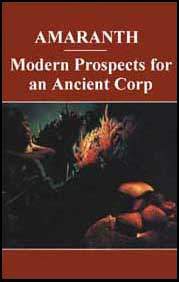
Copyright[edit | edit source]
Report of an Ad Hoc Panel of the Advisory Committee on Technology Innovation Board on Science and Technology for International Development (BOSTID) Office of International Affairs
National Research Council, 1984.

Report of an Ad Hoc Panel of the Advisory Committee on Technology Innovation Board on Science and Technology for International Development (BOSTID) Office of International Affairs
National Research Council, 1984.
| Authors | Eric Blazek |
|---|---|
| License | CC-BY-SA-3.0 |
| Language | English (en) |
| Related | 11 subpages, 16 pages link here |
| Aliases | Amaranth: Modern Prospects for an Ancient Crop |
| Impact | 356 page views (more) |
| Created | April 28, 2006 by Eric Blazek |
| Modified | December 10, 2023 by Felipe Schenone |
| Cite as | Eric Blazek (2006–2023). "Amaranth". Appropedia. Retrieved July 27, 2024. |
| API queries | basic, semantic, html, files, more |